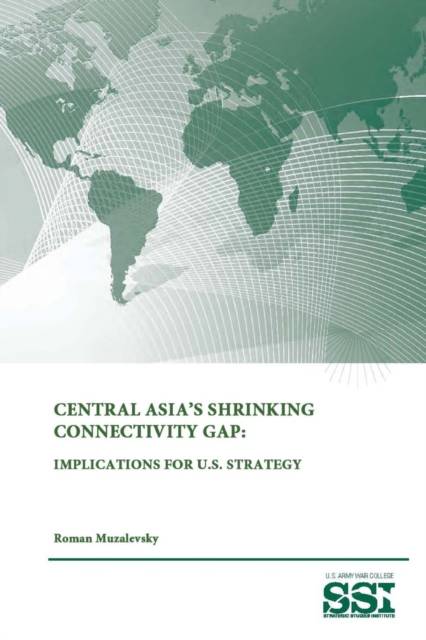
- Afhalen na 1 uur in een winkel met voorraad
- Gratis thuislevering in België vanaf € 30
- Ruim aanbod met 7 miljoen producten
- Afhalen na 1 uur in een winkel met voorraad
- Gratis thuislevering in België vanaf € 30
- Ruim aanbod met 7 miljoen producten
Zoeken
Central Asia's Shrinking Connectivity Gap
Implications For U.S. Strategy
Strategic Studies Institute, U S Army War College, Roman Muzalevsky
Paperback | Engels
€ 27,95
+ 55 punten
Omschrijving
Once sealed off from the rest of the world during the Soviet times, the states of Central Asia today are rapidly integrating with the global economy. The opening up of China in the 1980s, the demise of the Soviet Union a decade later, and the ongoing globalization have all served as grand forces facilitating this highly monumental development. The U.S. regional military involvement after September 11, 2001, and engagement by other actors have further enabled these countries to reconnect with the world, this time as sovereign units. Today, more than 2 decades after they gained their independence, the Central Asian countries, along with the rest of the world, face a great challenge and an opportunity-the rise of China, India, and resurgence of Russia. These neighboring powers are investing and facilitating internal and external links of the region and profoundly shaping the region's external connectivity at the very time as the United States withdraws its troops from Afghanistan...
Specificaties
Betrokkenen
- Auteur(s):
- Uitgeverij:
Inhoud
- Aantal bladzijden:
- 188
- Taal:
- Engels
Eigenschappen
- Productcode (EAN):
- 9781312846562
- Verschijningsdatum:
- 18/01/2015
- Uitvoering:
- Paperback
- Formaat:
- Trade paperback (VS)
- Afmetingen:
- 152 mm x 229 mm
- Gewicht:
- 281 g

Alleen bij Standaard Boekhandel
+ 55 punten op je klantenkaart van Standaard Boekhandel
Beoordelingen
We publiceren alleen reviews die voldoen aan de voorwaarden voor reviews. Bekijk onze voorwaarden voor reviews.











